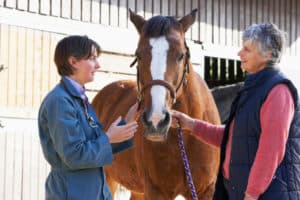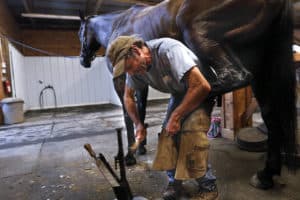Careers in the Equine Industry- What is out there?
There are numerous career paths in the equine industry and it can be quite confusing when trying to decide on what is best for you. If you are just starting out in the equine industry, getting lots of experience should be your priority! Don’t hold back when new opportunities arise and make sure you are jumping at any chance to learn as this will make you more employable in the future and can be a great way to make valuable connections. If you love horses, but don’t want a career in the saddle, don’t worry, the options are endless when it comes to careers in the equine industry.
Education for Careers in the Equine Industry
If you are considering study to further your skills and knowledge in the equine industry, there are lots of different courses out there. There are a broad range of tafe, university and internships available for you to choose from. The study modes can range from full time to part time and even flexible/distance (online). There is something out there for everyone!

Equine Careers
Below is a list of 15 equine career options and relevant courses that the equine industry has to offer.
- Equine Veterinarian: Equine veterinarians look after everything health related with your horse. They provide health care and advice on what is best for your horse as well as performing procedures and surgeries.
Course: Bachelor of Veterinary Medicine, Doctor of Veterinary Medicine - Equine Veterinary Nurse/Technician: Equine veterinary technicians/nurses provide assistance to veterinarians as they complete exams and surgical procedures.
Course: Certificate IV in Veterinary Nursing, Bachelor of Veterinary Technology - Farrier: Farriers are responsible for trimming, shoeing and maintaining horse’s hooves. Most farriers learn the trade via apprenticeship or via a course. This job can be physically demanding.
Course: Certificate III in Farriery - Mounted Police Officer: Mounted police officers use their horses to discourage crime whilst providing crowd control. Mounted police officers must perform general duties for 3 years before joining the mounted police.
Course: Bachelor of Policing, Diploma of Policing - Breeding (Broodmare/Stallion) Manager: Breeding managers supervise mares, foals and stallions whilst keeping detailed production records. In larger organisations there may be a stallion manager and a broodmare manager.
Course: Certificate III in Horse Breeding - Racehorse Trainer: Racehorse trainers condition and train the horses they are in charge of for race meets.
Course: Certificate IV in Racing (Racehorse Trainer) - Jockey/Track Rider: A jockey/track rider rides racehorses according to the trainer’s instructions. Jockeys can ride multiple races each day, as well as working horses in the morning with track riders.
Course: Certificate III in Racing (Track Rider). - Sales Representative: Many of the products you see in the vet or in a produce store were promoted by a manufactures sales representative. This job requires managing accounts and clients and it normally requires a great deal of travel. You can complete technical qualifications if working in a specialist area or you may also pick up a traineeship.
- Stable Hand/Groom: Grooms provide daily care for horses in their care. They can be responsible for cleaning stalls, washing horses, tacking up and traveling with the horses they are looking after.
Courses: Certificate III in Racing (Advanced Stable Hand)Certificate II in Racing (Stable Hand) - Bloodstock Agent: These agents evaluated horses at auction and bid on them on behalf of client as well as purchasing horses on behalf of clients. They also track down specific bloodlines for breeding and have a good knowledge of pedigrees and conformation.
- Equine Health Practitioner: This can include but is not limited to an equine chiropractor, massage therapist, acupuncturist and physiotherapist. The job can require travel to elite horse events and stables to treat horses. There is still course work and qualifications to become a health practitioner.
- Photographer or videographer: Most horse shows will have a photographer present to capture action shots as well as for training purposes, entertainment and sports reporting. It may require a fair amount of travel and equipment as well as some creative talent!
- Show management: For a show to happen and be successful, there are many people behind the scenes that help make things run smoothly. The staff at a horse show often includes managers, officials, course designers, ring stewards, scribes, and scorekeepers.
- Rider agent: Agents help manage top riders careers and book the riders shows or races all over the world. Agents may have a business or PR background and may need to handle travel and sponsorships for their riders.
- Equine transport provider: Equine transporters haul horses by truck as well as fly them around the world for competitions or for sale. It requires knowledge of horses and how to handle them in addition to logistics.

Equine Careers: How to Choose the Right Job for You
If hands on isn’t your thing, don’t worry, there many options that don’t require daily interaction with horses. You don’t always have to work directly with horses to have an equine career. Here at Ranvet, we employ a number of different riders that work full time whilst also managing to ride and compete. It’s important to remember that you may not start out in your dream job and you might have to work hard to get where you want to be. Choose something that you enjoy doing or are really passionate about!
Experts in Equine Nutrition
Every product in the Ranvet range has been developed to meet a horse’s most specific need at any given time, be it in a training environment or on a breeding farm. Having pioneered the formulation of specific medications and dietary supplements for horses, the company is now recognised as a leader in the areas of equine health and nutrition.
